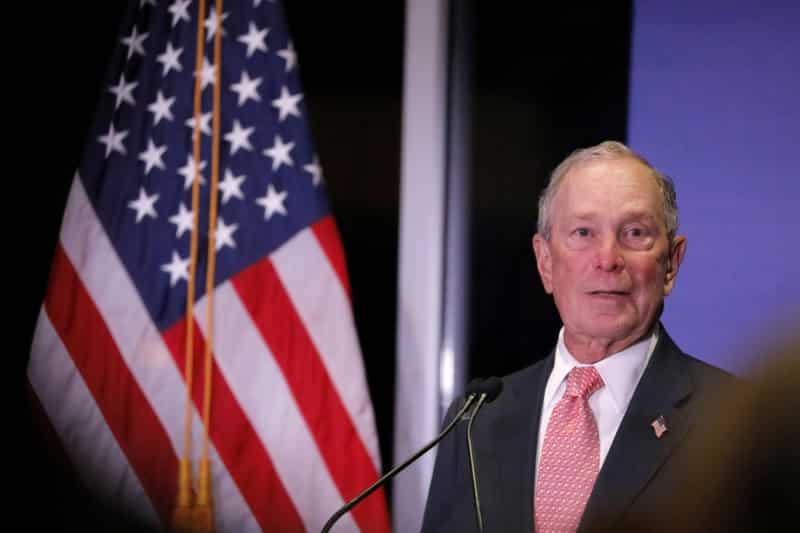Billionaire U.S. presidential candidate Mike Bloomberg has vastly expanded his campaign staff, which now boasts a battalion of over 1,000 workers, his campaign said on Tuesday, giving him significant force as he tries to unseat Republican President Donald Trump.
The media mogul is using his personal fortune to quickly build a national campaign since joining the presidential race in November, months after several Democratic rivals started campaigning. He has also vowed to keep campaign offices open in battleground states even if he is not the Democratic nominee.
His decision to skip the earliest nominating contests and not to accept outside money means Bloomberg did not qualify to be on the debate stage with Democrats on Tuesday ahead of the Feb. 3 Iowa caucus.
He will still be a major force as that contest hits the 14 states that hold Super Tuesday primary contests on March 3. Bloomberg has built an army of over 700 employees in 33 states, plus 300 more working in his Manhattan headquarters, according to a statement from the campaign. He is also blitzing the country with television and digital advertisements.
Just over a week ago the Bloomberg campaign said it had 800 total staff members.
According to a Reuters analysis of federal campaign finance filings through the third quarter of 2019, U.S. Senator Elizabeth Warren had about 600 campaign workers; U.S. Senator Bernie Sanders had 550; and ex-Vice President Joe Biden and former South Bend, Indiana, Mayor Pete Buttigieg had about 450 each.
On Saturday, Bloomberg, the former New York City mayor, told Reuters he was ready to spend much of his fortune, estimated by the publication Forbes to be nearly $60 billion, to oust Trump from the White House in November 2020.
Democratic rivals have complained that Bloomberg is trying to buy the election.
Bloomberg will not be the only big spender trying to cut Trump down. Priorities USA, a Democratic political action committee, announced on Tuesday it would expand its budget from $100 million to $150 million through July to run ads against Trump in the key battleground states of Florida, Michigan, Pennsylvania and Wisconsin.
All this points to the likelihood of an historically expensive U.S. presidential election. More than $446 million has already been spent by candidates in both parties, including $90 million by Trump, a partial figure according to the Federal Election Commission that does not include spending by outside groups.
Trump’s re-election campaign did not immediately respond to a request for comment.
(Reporting by Trevor Hunnicutt; Additional reporting by Grant Smith and Jason Lange; Editing by David Gregorio)

























 Continue with Google
Continue with Google